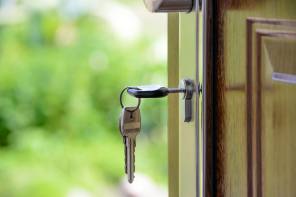

Confidence in the housing market has fallen to a five-year low amid growing concerns about the UK’s economic outlook.
The latest Halifax Housing Market Tracker, which measures consumer sentiment on whether house prices will be higher or lower in a year’s time, has dropped 14 points from April 2017 (+44) to October (+30).
The decline matches the record fall that took place after the EU referendum result.
Half of those surveyed said they expected house prices to rise over the next year, the lowest level since April 2013 (45 per cent), while one in five said they thought house prices would fall, the highest point since October 2012 (20 per cent).
The ability to raise a deposit (61 per cent) and job security (42 per cent) remain the main barriers to buying, with household finances showing the biggest increase (+7) since the last survey.
Despite expectations of an imminent rise in the base rate, only 15 per cent said they saw it as a barrier to buying a house.
The fall in confidence coincides with growing concerns about the wider economy, with Ipsos Mori’s Economic Optimism Index showing the balance of people who believe Britain’s general economic conditions will improve over the next 12 months is -31 - the lowest level since January 2012.
London is the only region with a negative outlook (-3 per cent) regarding whether the next 12 months would be a good time to buy, while people from the West Midlands (+30) and Wales (+26) are the most positive.
Those aged between 16 and 24 are the only age group with a negative buying outlook (-15 per cent), whilst those over 65 are the most positive (+26).
Across the country, over half (52 per cent) of those surveyed said they thought it would be a good time to buy.
Selling sentiment (+6 per cent) has dropped 11 points since April, with those in Wales the least positive about selling (-19 per cent) and those in the south west the most positive (+42 per cent).
People aged 16-24 are least positive about selling (-8 per cent) with 35-54 year olds the most positive (+20 per cent).
The survey was based on interviews with 1,968 British adults aged 16 and over, 535 of whom are mortgage holders.
Russell Galley, managing director, Halifax Community Bank, said: “Housing market optimism has declined significantly over the past year, with almost half of people expecting a general slowdown in the market.
“Even with a potential base rate increase on the horizon, it’s significant that buyers’ concerns continue to be centred on raising deposits and job security and, as such, we do not anticipate that an increase in Base Rate will have a significant effect on the demand for properties.”
Alex Reynolds, IFA at London-based Advies Private Clients, said a cut in stamp duty for first-time buyers could be a way for the government to combat negative sentiment in the market.
He said: “House prices have clearly been affected by uncertainty over Brexit and interest rates rising. I think a lot of people are possibly looking and thinking ‘do I want to buy a house when interest rates are rising?’. Inflation is rising, which is putting a squeeze on people’s finances in general.
“Reports say a lot more people are extending homes and doing renovation work rather than moving. I think stamp duty is a big barrier, and it will be interesting to see if they do anything to encourage first-time buyers. It is also a barrier to older people looking to downsize.”
Mr Reynolds said a cut in stamp duty would be “easy, popular and would help the market”, but he was less confident that the government would reverse tax increases on buy-to-let landlords, which he believes have gone too far.
Read the guide to buying property in a Brexit world and bank 60 minutes of CPD here.
simon.allin@ft.com



